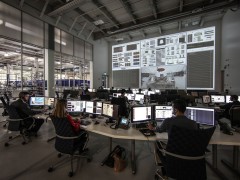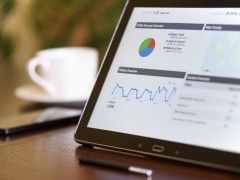Why Should Your Child Study Statistics?
A career in statistics will offer job satisfaction, economic stability, and opportunities for life-long learning.
Statistician jobs are projected to grow 33 percent between 2019 and 2029, according to Bureau of Labor Statistics data. Even in challenging economic times, careers in statistics remain in high demand. A 2020 Burtch Works study found that the median salaries for statisticians range from $95,500 to $300,000 depending on experience and the position. Compared to 2019 data, these figures have increased or remained constant, an additional benefit for your child’s future.
So why should your child study statistics? Put simply, to pursue a career that’s fun but also provides a good return on your education investment.
Which Sectors Employ Statisticians?
The opportunities are endless.
There’s a good chance your child can apply statistics to whatever field interests them, from making smarter software to developing safer drugs. Your child can also use statistics skills in unexpected sectors, including journalism, sports and fashion. Here’s a snapshot of select places where statisticians work and what they do.
Health and Medicine
Pharmacology

Pharmaceutical companies like Pfizer and Eli Lilly employ statisticians and biostatisticians to help them develop new drugs that are safe and effective. They often work on teams with doctors and research scientists to design and execute experiments and clinical trials.They also work for agencies that regulate drugs, such as the U.S. Food and Drug Administration.
Animal Health

Statisticians can find many opportunities to work with animals. Many collaborate with other scientists to find ways to protect endangered species and increase their populations, for example. Such statisticians might work for a large zoo, a research institute like the Center for Human-Animal Bond or a nonprofit organization like the World Wildlife Fund.
Biostatistics

Biostatisticians perform this work for a variety of research centers, public health organizations, and government agencies including the Mayo Clinic, the National Institutes fo Health, and the Centers for Disease Control and Prevention.To combat diseases like breast cancer and HIV/AIDS, scientists must understand how prevalent such conditions are among various populations and why. Statisticians perform this work for a variety of public health organizations and government agencies, including the National Institutes of Health and the Centers for Disease Control and Prevention.
Business and Technology
Artificial Intelligence

From Apple to Oracle and Google to Microsoft, statisticians work at a variety of technology companies to advance the computing industry, from ensuring reliability of hardware components to improving the quality of speech recognition and image analysis software applications.
Agriculture

Why are some plants more resistant to disease than others? What is the impact of pesticides on crop production and the environment? Statisticians work with teams of experts to answer questions like these at businesses and organizations such as Archer Daniels Midland, the U.S. Department of Agriculture, and Texas A&M AgriLife Research.
Marketing

Statisticians are critical to helping companies understand consumer tastes and preferences so products can be more effectively marketed. They gather and analyze data that helps guide the marketing strategies of global brands like Coca-Cola and multinational consumer products companies like P&G.
Government
International Development

Humanitarian aid and development organizations such as the United Nations, the World Bank, and the Bill and Melinda Gates Foundation conduct studies led by statisticians and other experts that influence decisions about where and how aid is allocated to places afflicted by poverty, disease and conflict that influence critical decisions about the distribution of aid to regions afflicted by poverty, disease, or conflict.
Education, Labor and Research

The work of statisticians at government agencies like the U.S. Department of Education and the U.S. Department of Labor support a wide variety of policy decisions, from easing college tuition costs to enacting legislation to increase the minimum wage. Statisticians can also design and implement research projects on important scientific and policy issues from automated driving systems to data privacy working at organizations such as the RAND Corporation and the Urban Institute.
Economy and Society

Statisticians at agencies like the U.S. Census Bureau and Bureau of Justice Statistics gather and analyze data about the U.S. population and economy that impact policy decisions such as how to draw up legislative districts, lower prisoner recidivism rates, and allocate federal funds to state and local governments for services related to education, health care and transportation.

